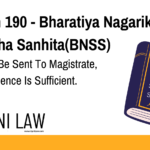Code:
(1) Every police officer making an investigation under this Chapter shall day by
day enter his proceedings in the investigation in a diary, setting forth the time at which the
information reached him, the time at which he began and closed his investigation, the place
or places visited by him, and a statement of the circumstances ascertained through his
investigation.
(2) The statements of witnesses recorded during the course of investigation under
section 180 shall be inserted in the case diary.
(3) The diary referred to in sub-section (1) shall be a volume and duly paginated.
(4) Any Criminal Court may send for the police diaries of a case under inquiry or trial
in such Court, and may use such diaries, not as evidence in the case, but to aid it in such
inquiry or trial.
(5) Neither the accused nor his agents shall be entitled to call for such diaries, nor
shall he or they be entitled to see them merely because they are referred to by the Court; but,
if they are used by the police officer who made them to refresh his memory, or if the Court
uses them for the purpose of contradicting such police officer, the provisions of section 148
or section 164, as the case may be, of the Bharatiya Sakshya Adhiniyam, 2023, shall apply.
Explanation:
(1) This section of the BNSS mandates the detailed record-keeping by police officers during investigations. It outlines the specific information that must be documented in a diary, including:
Time of receiving the information
Start and end times of the investigation
Locations visited
Circumstances discovered during the investigation
(2) Additionally, statements of witnesses recorded under Section 180 must be incorporated into the case diary.
(3) The diary is a bound volume with sequential page numbers.
(4) Criminal courts have the authority to request police diaries for cases under inquiry or trial, but these diaries are not considered direct evidence. Instead, they serve as tools for the court to assist in their proceedings.
(5) The accused and their representatives do not have the right to demand these diaries or view them simply because they are mentioned by the court. However, if the police officer uses the diary to refresh their memory, or if the court uses it to contradict the officer’s testimony, then the relevant provisions of the Bharatiya Sakshya Adhiniyam, 2023 (Indian Evidence Act) apply.
Illustration:
Imagine a police officer investigating a theft case. They would record the time they received the report, the time they started and ended their investigation, the locations they visited (e.g., the scene of the crime, the victim’s house, potential suspect locations), and the details they gathered about the theft (e.g., description of stolen items, witness statements). All this information would be documented in the case diary.
Common Questions and Answers”
Q: Can the accused see the case diary?
A: Not directly, unless it’s used by the police officer to refresh their memory or by the court to contradict their testimony.
Q: Can the court use the case diary as evidence?
A: No, the diary is not considered direct evidence. It is used as an aid to the court’s inquiry or trial.
Q: Why is the case diary important?
A: It provides a detailed and chronological record of the investigation, ensuring transparency, accountability, and consistency in the investigation process.








